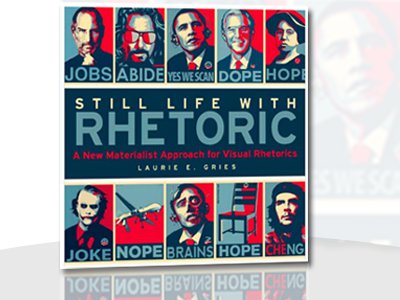Alumni Win Awards for Scholarly Writing
Innovation meets liberal arts approach to scholarly writing

In 1997, Syracuse University launched the country's first doctoral program in rhetoric and composition located in an independent academic unit focused on writing. The Composition and Cultural Rhetoric (CCR) Doctoral Program took its place in the Writing Program (recently renamed the Department of Writing Studies, Rhetoric, and Composition), itself a national leader in the field. The department emerged amid a national trend of independent academic units that focused on writing pedagogy rather than on the literary text, typically the province of English departments.
That tradition of innovation, coupled with an approach department chair Lois Agnew notes "is broadly and unapologetically situated in the liberal arts," has inspired recent graduate projects that earned an unusually high number of awards for their scholarly writing.
"It's a strength of our program that we're small but have a diversity of experience," Agnew says. "We help graduate students pursue research that reflects their interests. We see that in the wide variety of writing projects that were honored this year."
Syracuse's nationally recognized CCR doctoral program trains students to develop as scholars and to teach writing at the college level. A March 2010 college-mandated external review by three nationally recognized reviewers listed it as among the top five programs in the country. The department boasts a 90 percent placement of its graduates in tenure-track positions, and that success is due to their achievements and preparation, says CCR director Eileen E. Schell.
“The CCR program is a small, focused and highly selective doctoral program," Schell says. “We focus on developing students’ individual research interests while working to help them to gain a broad understanding of the discipline of rhetoric and composition studies.”
The Department of Writing Studies, Rhetoric, and Composition teaches WRT 105 and WRT 205, which are all-university requirements. Graduates of its bachelor's degree program in writing and rhetoric find careers in a variety of professional fields, including law, education, public relations and social media. Writing Center consultants assist students in 5,500 to 6,000 appointments a year, and more than half of the appointments are with international students.
From the all-university writing center to the doctoral program, the department aims to focus on student writing across academic levels and disciplines. "All of us are trying to help students think like writers who are prepared to respond to varied rhetorical contexts," Agnew explains. "We're teaching them to think about how writing is directed at a specific audience and trying to achieve a specific action."

The department’s rhetorical roots include the idea that writing prepares people for citizenship, which includes preparing students to compose successfully for a variety of rhetorical situations and purposes, including for digital environments. Rhetoric is "the strategic use of language in communicating experience, promoting community, and establishing and resisting power," Agnew says. "Teaching students to write with rhetorical sensitivity is central to our program."
Here are the awards that CCR alumni from the past few years have received in the last six months. These students are part of a dynamic group of over 50 CCR alumni who are making strong contributions to rhetoric and writing studies:
- Allison Hitt G '15 received the Computers and Composition Hugh Burns Dissertation Award for “From Accommodation to Accessibility: How Rhetorics of Overcoming Manifest in Writing Pedagogies.”
- Hitt also received honorable mention for the Conference on College Composition and Communication (CCCC) James Berlin Outstanding Dissertation Award.
- Seth Long G '15 received the American Society for the History of Rhetoric’s 2016 Outstanding Dissertation Award for "Visualizing Words and Knowledge: Arts of Memory from the Agora to the Computer."
- Tim Dougherty G '15 received the 2016 Kneupper Award for his article “Lost in TransNation: The Limits to Constitutive Nationalism in the Fenian Movement.” The Kneupper Award recognizes the outstanding article published in Rhetoric Society Quarterly, a top national journal in rhetorical studies.
- Laurie Gries G '10 received the CCCC the Advancement of Knowledge Award and the Research Impact Award for "Still Life with Rhetoric: A New Materialist Approach for Visual Rhetorics" (Utah State University Press, 2015). The book was developed from her dissertation.
- Ben Kuebrich G '15 won the 2016 Braddock Award for his article “'White Guys Who Send my Uncle to Prison': Going Public within Asymmetrical Power,” published in the June 2015 issue of College Composition and Communication. This annual award is given to the outstanding article published in the journal.
